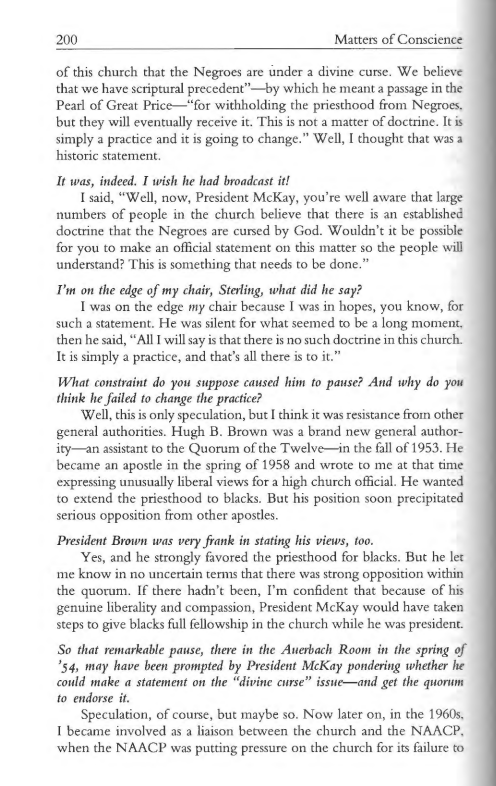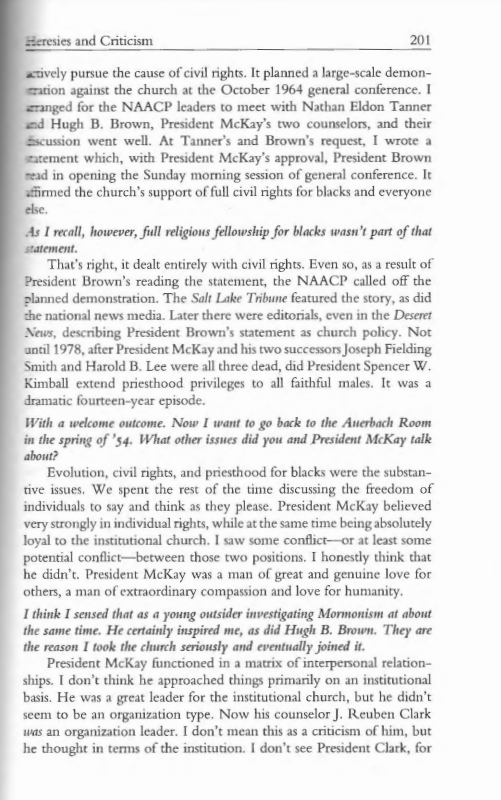Sterling M. McMurrin reports that he arranged meetings with the NAACP (National Association for the Advancement of Colored People) and drafted a First Presidency statement on civil rights read at the October 1963 General Conference.
- Type
- Book
- Hearsay
- Scribed Verbatim
- Reference
Sterling M. McMurrin and L. Jackson Newell. Matters of Conscience: Conversations with Sterling W. McMurrin on Philosophy, Education, and Religion (Salt Lake City, UT: Signature Books, 1996), 200-201
- Scribe/Publisher
- Signature Books
- Audience
- General Public
- Transcription
So that remarkable pause, there in the Auerbach Room in the spring of '54, may have been prompted by President McKay pondering whether he could make a statement on the "divine curse" issue-and get the quorum to endorse it.
Speculation, of course, but maybe so. Now later on, in the 1960s. I became involved as a liaison between the church and the NAACP when the NAACP was putting pressure on the church for its failure to actively pursue the cause of civil rights. It planned a large-scale demonstration against the church at the October 1964 [sic - should read 1963] general conference. I arranged for the NAACP leaders to meet with Nathan Eldon Tanner and Hugh B. Brown, President McKay's two counselors, and their discussion went well. At Tanner's and Brown's request, I wrote a statement which, with President McKay's approval, President Brown read in opening the Sunday morning session of general conference. It affirmed the church's support of full civil rights for blacks and everyone else.
As I recall, however, full religious fellowship for blacks wasn't part of that statement.
That's right, it dealt entirely with civil rights. Even so, as a result of President Brown's reading the statement, the NAACP called off the planned demonstration. The Salt Lake Tribune featured the story, as did the national news media. Later there were editorials, even in the Deseret News, describing President Brown's statement as church policy. Not until 1978, after President McKay and his two successors Joseph Fielding Smith and Harold B. Lee were all three dead, did President Spencer W. Kimball extend priesthood privileges to all faithful males. It was a dramatic fourteen-year episode.
The B. H. Roberts Foundation is not owned by, operated by, or affiliated with the Church of Jesus Christ of Latter-day Saints.


